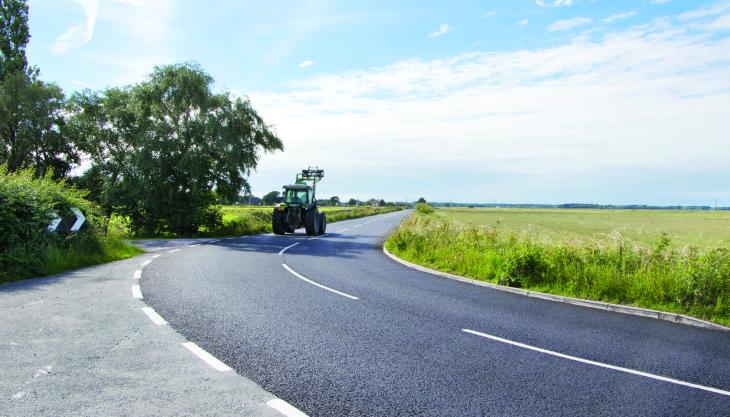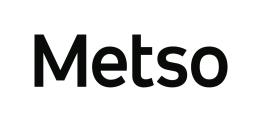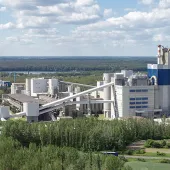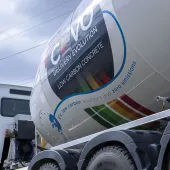CEMEX introduce Vialow asphalt

New range of low-temperature, reduced-carbon asphalts with CarbonNeutral product option
CEMEX have introduced a new addition to their Vertua family of sustainable low-carbon building solutions. Vialow is a reduced-carbon asphalt which comes with the option to offset residual CO2 to make it a CarbonNeutral product, in accordance with The CarbonNeutral Protocol.
Vialow uses a specially formulated bitumen additive that permits manufacture at temperatures up to 40°C lower than standard asphalt mixes with no compromise in performance, and with the added benefit of achieving up to a 20% reduction in embodied carbon emissions.
The range includes the Vialow Zero option – a CarbonNeutral product that complements the CEMEX Vertua range of low-carbon building solutions and further enhances CEMEX’s Future In Action strategy, which is committed to net-zero CO2.
As technology and the industry shifts toward low-carbon asphalt, CEMEX say the best interim way to sequester the rest of the CO2 footprint, to make it a carbon-neutral product, is through carbon offsetting. To do this, the company is working with Natural Capital Partners, award-winning experts on carbon neutrality and climate finance.
Vialow is said to offer customers a host of other benefits alongside its sustainability credentials. The lower temperature of the manufacturing process can help to improve the long-term performance and durability of the asphalt, as the high temperature used in conventional mixes leads to more oxidative hardening of bitumen than is seen in lower-temperature variants.
Moreover, reduced-temperature asphalt offers safety and environmental benefits, including a reduced risk of burns and a reduction in odours, providing a safer and more pleasant working environment for both workers and the public. For approximately each 10°C reduction in mixing and paving temperature, fume generation is reduced by around 50%.
By virtue of being a low-temperature asphalt, Vialow also allows the reopening of a job site more quickly after the completion of roadworks, as the asphalt reaches appropriate trafficking temperatures faster than conventional hot-mix asphalt.
As well as minimizing disruption and allowing construction programmes to remain on time, this offers further benefits to the environment, as statistics show that stationary traffic caused by road closures creates four times as many pollutants in comparison with moving vehicles.
The launch of CEMEX’s Vialow range follows a report from the All-Party Parliamentary Group (APPG) on Highways which identified warm-mix asphalts (WMA) as an under-utilized opportunity to reduce the CO2 emissions associated with asphalt production for road infrastructure.
At the time of publication, the report found that WMAs represented less than 4% of UK asphalt production, yet if all asphalt production in Great Britain had been switched to WMA, it would have saved at least 61,000 tonnes of CO2 – the equivalent of cutting almost 300 million miles of car journeys.
Carl Platt, CEMEX’s director of asphalt, paving and building products for Europe, commented: ‘We are totally committed to improving the sustainability of our operations and supporting our customers to do the same. With the launch of Vialow, we aim to make it simple for customers to choose more sustainable and environmentally friendly asphalts that have a lower embodied carbon, offset residual emissions and help drive vital change.
‘Moreover, this industry-leading range of low-temperature asphalts is designed to deliver faster construction times, minimize disruption and reduce road maintenance costs alongside the added benefit of a carbon footprint reduction.’
Vialow is available all year round in all asphalt concrete base, binder and surface courses, as well as hot-rolled asphalt (only where pre-coated chippings are not required), stone-mastic asphalt and CEMEX’s full proprietary range.
After engineering carbon reductions into the asphalt mix design, CEMEX calculate the embodied carbon generated from the extraction, transportation and processing of raw materials, product manufacturing and distribution. The residual carbon is then offset, making the asphalt CarbonNeutral from cradle to customer.
CEMEX will facilitate carbon offsetting by financing projects that physically remove CO2 from the atmosphere, such as planting trees. The client will then be issued with a CarbonNeutral certificate, providing confirmation that the embodied carbon (CO2e) in the Vialow range has been determined using a carbon footprint calculator in accordance with relevant standards and guidance.









